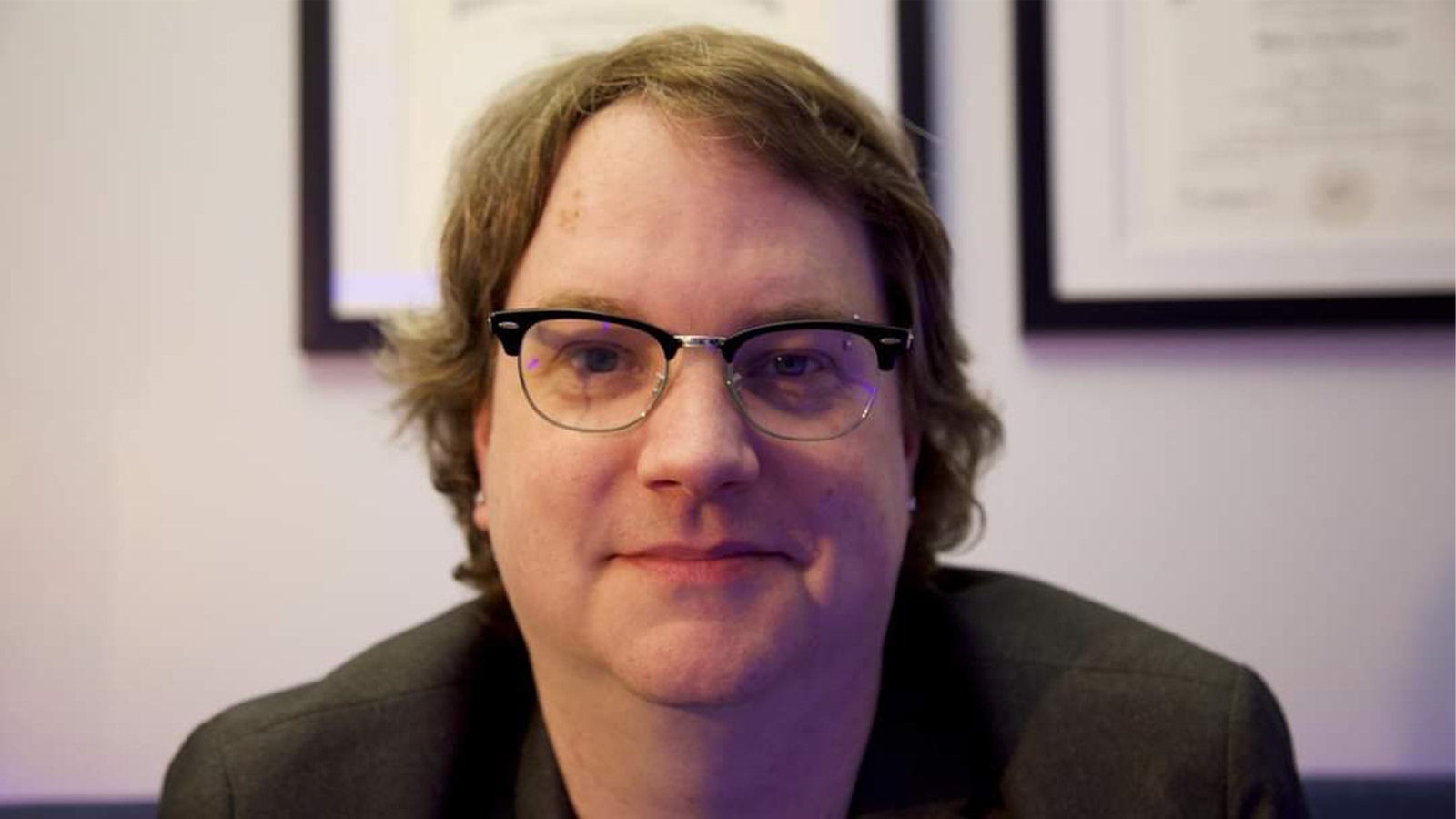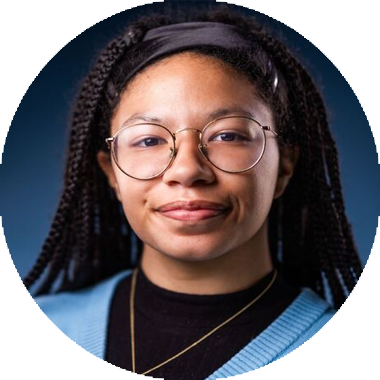Full Sail Stories
Published Apr 18, 2024
Faculty Spotlight: Adam Baldowski
Course director and mental health counselor Adam Baldowski utilizes the practice of “Geek Therapy” to connect with clients – and students – on a pop culture level.

In addition to being an educator, Media Design course director Dr. Adam Baldowski is also an avid fan of pop culture. After receiving their Ph.D. in media psychology, they decided to combine their interests and ventured into the realm of Geek Therapy, a type of counseling that implements a client’s passions or hobbies, whether it be knitting or Dungeons & Dragons or vintage, sci-fi movies.
“Geek Therapy has been a huge help in the therapy world because clients feel more comfortable,” they say. “And some of my belief, and I think this is true for students too, is we often say, ‘meet the client where they're at.’ And what better way to do that than with the thing that they're interested in because they're more likely to remember it.”
Many of Adam’s clients are young students or members of the LGBTQ community, so Adam was eager to find this new way of connection that allowed clients to explore their mental health through the unique perspective of their own interests. Adam has even begun to write about their research in the form of freelance stories, focusing on metaphors for mental health in media, such as the post-traumatic growth found in HBO’s The Last of Us.
Prior to counseling and education, Adam’s initial dream was to be a filmmaker, and they received a bachelor’s and master’s in filmmaking from Savannah College of Art and Design. After graduation, Adam left the east coast to work in Los Angeles, and they were able to work on the production end of several shows such as Glee, NCIS LA, and Hollis & Rae. While in LA, a long-time friend told Adam about an open faculty position at Full Sail University teaching the ethics of design; both the work and the school appealed to Adam, and a decade later, they’re now a course director for the Media Design MFA program.
“In the 10, 11 years that I've been here, it's just been a great experience,” they say. “I think I'll speak for myself to say that I love our department. It's like a family, and I'm very happy to be here.”
In the classroom, Adam implements elements of previous classes they’ve attended as a student, such as flipping the classroom so that the discussions are more like conversations rather than lectures and allowing students to answer one another’s questions, a tactic Adam’s favorite professors implemented when they were a student. These methods not only can help build students’ confidence as they take on the role of lecturer, but it can also help students more fully grasp concepts of design in their entirety. Adam also acknowledges the unique challenges that come from working in a creative field such as media design.
“Something I like to encourage my students — especially design students, because they like to compare themselves to one another and so there's a lot of imposter syndrome [among them] — is that you're all here for a reason and each one of you has a unique voice. Just because somebody might have worked in the industry for 20 years and you might be new, doesn't mean that you can't provide something that will help educate the person who's been in the field for a while. Everybody starts somewhere.”
“As a media design instructor,” they say, “I talk a lot about how our students can influence in a good way, I encourage them to use their powers for good to influence audiences and customers and, through design, to deliver a message.”
Adam tries to implement this lesson of good influence into their own life, as well. After joining Full Sail, Adam went on to receive their Ph.D. in media psychology from Fielding Graduate University to understand the impacts of media. However, following the tragic Pulse nightclub shooting in 2016, they realized they wanted to expand their impact beyond research, so they began their journey into mental health counseling. Prior to finding Geek Therapy, Adam struggled to connect with the different varieties of counseling, but, with such a strong interest in fandom and fan theory, Geek Therapy allowed Adam to hone their interests into a more relatable path.
A decade into Adam’s career at Full Sail and several moments of self-discovery later, they feel fulfilled at their home of Full Sail University.
“Full Sail, to me, always seemed like the place for maybe the people [for whom] college didn't feel like it was in the cards; maybe they were the outcasts in school, the artists, the creatives, the island of misfit toys type, and [Full Sail] gave them a home and a space to be themselves creatively,” says Adam. “I've seen a lot of students thrive in finding their creative voices, and I think Full Sail is really good at fostering that.”



